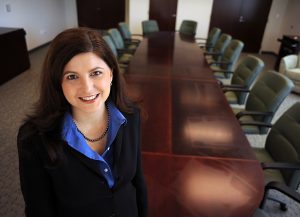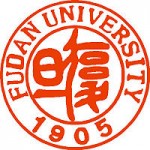The Chinese Marketing Research Center at Fudan University and the Science of Networks in Communities (SONIC) Laboratory at Northwestern University have signed a strategic cooperation agreement to promote academic collaboration in research and education. The two research centers will work with Shanda Game to expand the Virtual Worlds Exploratorium (VWE) research to many Chinese online games. Professor Noshir Contractor also received the title of Honorary Professor from Fudan University on September 13th, 2010.
Local Model of Scientific Collaboration in Developing Nation
 A region specific study, located in the Middle East, on the scientific collaboration of physicists, who are based in Iran, across multiple disciplines was recently done a few months ago. Analyzing the network’s basic properties, betweenness, diamater, etc., the local model is then compared to the global model of scientific collaboration to discover how a developing region such as the Middle East can contribute to global scientific process statistically. However, what becomes striking is how the local model unexpectedly differs from the global model. For example, despite the fact that the diameter of Iran’s physicists network is much smaller, resulting from a low diversity of information and disciplines, the physicists are reluctant to collaborate.
A region specific study, located in the Middle East, on the scientific collaboration of physicists, who are based in Iran, across multiple disciplines was recently done a few months ago. Analyzing the network’s basic properties, betweenness, diamater, etc., the local model is then compared to the global model of scientific collaboration to discover how a developing region such as the Middle East can contribute to global scientific process statistically. However, what becomes striking is how the local model unexpectedly differs from the global model. For example, despite the fact that the diameter of Iran’s physicists network is much smaller, resulting from a low diversity of information and disciplines, the physicists are reluctant to collaborate.
Collaboration between SONIC and CFES
On Monday, January 24, 2011, SONIC Lab Director Professor Noshir Contractor and Dr. Jan van Dijk of the Center for eGovernment (CFES), signed a memorandum of understanding.
The aim of the collaboration is to combine the research expertise of CFES with SONIC Lab’s in advancing our understanding the networked government. Examples of networks with the context of government:
- Networks of collaborating governmental agencies
- Communication networks between citizens, businesses, and governments
- Intermediary networks (roles of intermediaries in the stakeholder/government relationship)
- Open data networks
Understanding the complexities of the networked government is difficult. Research in this domain is scarce. The shortage of research is magnified by the rise of social media (web 2.0). We lack theories that explain and anticipate the transformation and impact of the networked government at the individual, organizational, and societal levels. The cooperation between CFES and SONIC will seek to advance our knowledge in this field.
The mission of the SONIC/CFES collaboration is the following:
The SONlC/CFES collaboration combines social network theories, methods, and tools with knowledge from the e-Government domain to understand and meet the needs of the networked government.
The research groups will exchange knowledge, collaborate on funding of projects for (internationally comparative) research, and coauthor publications.
The website for CFES: http://www.utwente.nl/ibr/cfes/
The website for SONIC: http://sonic.northwestern.edu/
ICA and Sunbelt Conference paper acceptances
We have had papers accepted at the International Communication Association (ICA) and the INSNA Sunbelt conference for research related to team assembly and collaboration on Wikipedia articles about breaking news topics.
Keegan, B., Gergle, D., Contractor, N. (2011). “A Multi-theoretical, Multi-level Model of High Tempo Collaboration in an Online Community.” INSNA Sunbelt XXXI, Tampa, Florida.
Keegan, B. (2011). “Breaking News, Breaking Planes, and Breaking Hearts: Psycholinguistics and Sensemaking in Collaborative Accounts of Catastrophe.” International Communication Association, Boston, MA.
My ICA paper was nominated as a Best Student Paper for the Communication and Technology Division.
Leslie DeChurch SONIC Speaker Series
Leslie DeChurch, University of Central Florida “Collaboration within and across teams: Leadership forms and network structures” Friday, November 19, 2010.
University of Central Florida “Collaboration within and across teams: Leadership forms and network structures” Friday, November 19, 2010.
Organizations are restructuring into collaborative work systems because they offer the ability to address complex problems by combining expertise distributed across business functions, knowledge specialties, geographic locations, and organizational boundaries. Often times the goals these systems face are complex and multifaceted requiring multiple distinct teams to coordinate their efforts and compile information for decision making distributed across a network of teams. The current study explores the structural contingency theory prediction that collaboration is a function of alignment between the form of leadership and structure of communication network. Ideas were tested in a sample in 80, 6-person networks tasked with performing a laboratory pc-game-based humanitarian aid task. Leadership form and communication network structures were manipulated, and effects on socio-cognitive networks, teamwork processes, and multiteam effectiveness examined.
Professor DeChurch’s research program explores what makes effective team leaders, how teams successfully collaborate across boundaries, and how leadership and team dynamics are sustained in virtual organizations. Professor DeChurch is currently Principal Investigator on “Building functionally collaborative infrastructure in virtual organizations” (NSF), and “Leadership in complex network environments” (Army Research Institute).
[line]
Collaboration Within and Across Teams
[line]
New Global Network of Web Science Laboratories announced at WebSci10
New Global Network of Web Science Laboratories announced at WebSci10
EMBARGO 00.01 Tuesday 27 April 2010
A new international network announced yesterday (Monday 26 April 2010) creates an alliance of world-class research laboratories to support the Web Science research and education program.
The Web Science Trust Network of Laboratories (WSTNet) combines some of the world’s leading academic researchers in Web Science, with new academic programs that will enhance the already growing influence of Web Science.
WSTNet will be managed by the Web Science Trust, which brings together academics, business leaders, entrepreneurs and policy-makers from around the world with the goal of fostering multidisciplinary research to study the World Wide Web and describe the issues and challenges that will shape its future use and design.
Through a number of specific agreements and commitments with the Web Science Trust, the member Labs will provide valuable support for the ongoing development of Web Science.
‘This is yet another important milestone in the progress of Web Science,’ said Sir John Taylor, Chair of the WST Trustee Board. ‘We are linking together a group of highly respected research laboratories which are all already making internationally-leading contributions through their research. We look forward to what we can achieve together in the future, through a series of joint research programs, events, and collaborations.’
Contributions from the Labs will include the organization and hosting of summer schools, workshops and meetings, including the WebSci conference series. The WSTNet Labs will also identify opportunities for new events and fundraising, all as part of the ongoing development of Web Science.
The announcement of WSTNet was made at the WebSci10 conference taking place in Raleigh, North Carolina, USA, from 26 to 27 April, and co-located with the World Wide Web conference. Representatives of all the Labs are attending the conference along with researchers from the many different disciplines which are involved in Web Science.
‘WSTNet will extend our global research capabilities in Web Science as well as ensuring that the subject is built into university syllabuses,’ said Professor Dame Wendy Hall, Managing Director of WST and one of the founders of the discipline of Web Science. ‘We will continue to extend the network to other research institutes which are already committed to Web Science.
‘We are delighted to welcome on board all the Labs and look forward to further exciting developments in the future.’
The full list of Founding WSTNet Labs is:
Annenberg Network of Networks, University of Southern California http://ascnetworksnetwork.org/
Decentralized Information Group (DIG), Massachusetts Institute of Technology http://dig.csail.mit.edu/
Department of Computer Science, VU Amsterdam http://www.cs.vu.nl/en/research/business-informatics/index.asp
Digital Enterprise Research Institute, NUI Galway http://www.deri.ie/
Institute for Web Science and Technologies (WeST), Universitat Koblenz-Landau http://west.uni-koblenz.de/
Oxford Internet Institute http://www.oii.ox.ac.uk/
Science of Networks in Communities (SONIC) Lab, Northwestern University http://sonic.northwestern.edu/
Tsinghua-Southampton Web Science Laboratory at Shenzhen http://weblab.sz.tsinghua.edu.cn/
Web Science Research Centre, Rensselaer Polytechnic Institute http://tw.rpi.edu/
Web Science Research Group, University of Southampton http://webscience.ecs.soton.ac.uk/
Notes for Editors
For further information about Web Science and the Web Science Trust see http://www.webscience.org
For further information about WebSci10 see http://www.websci10.org/
The Web Science Trust (WST) is a charitable body with the aim of supporting the global development of Web Science.
For further information contact:
Professor Dame Wendy Hall, School of Electronics and Computer Science, University of Southampton (wh@ecs.soton.ac.uk; tel.+44(0)23 8059 3255)
Joyce Lewis, Communications Manager, School of Electronics and Computer Science, University of Southampton (j.k.lewis@ecs.soton.ac.uk)


